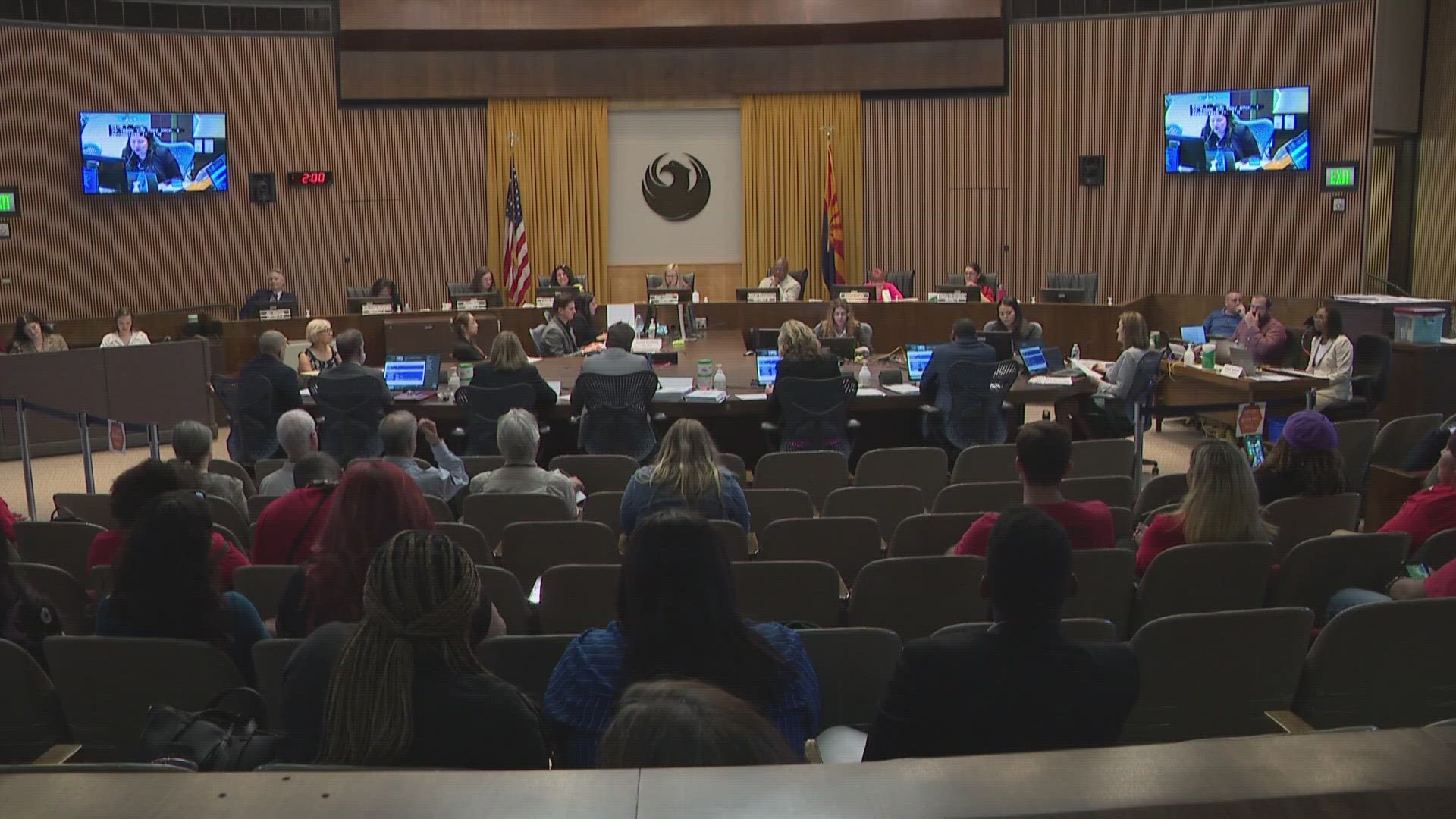PHOENIX — In a few weeks, the U.S. Department of Justice investigation of alleged misconduct by Phoenix police will enter its third year.
The question now is not just when the investigation will end, but how it will end.
The answer to those questions could lead to a court showdown over who decides how to reform Phoenix police.
At issue is a potential consent decree between the city and the DOJ that the city council would have to approve. The decree would commit the city to making specific changes in how police do their jobs.
A majority of the nine-member council, including Mayor Kate Gallego, wants to preview the DOJ investigation's findings before they are made public.
'It Doesn't Make Sense to Me'
Twice in the last 14 months, the city's lawyer has requested the preview. As recently as last week, the DOJ has rejected it.
"Nobody signs a contract without reading the contract," City Councilwoman Ann O'Brien said in an interview.
"We need to know what your findings are. We need to make sure that they're accurate and factual. So it doesn't make sense to me."
A majority of the nine-member Phoenix City Council would have to vote to enter into a consent decree.
Under DOJ guidelines, the council could get a preview of the findings only if it agreed in principle to enter into a consent decree, with an outside monitor enforcing the agreement.
"It's not a problem that they're here wanting to look into things," O'Brien said. "It's this lack of cooperation and how we move forward with whatever recommendations they have."
Council Facing External Pressure
Council members have come under pressure from an ad hoc campaign urging the rejection of a consent decree. A highway billboard went up last month.
Republican state lawmakers are also calling on Phoenix to reject a decree.
For more than two years, Justice Department investigators have reviewed Phoenix police officers' use of force, alleged retaliation against protestors, treatment of the homeless population, and other performance issues.
Community groups that have pressed for changes at Phoenix PD have not been part of the back-and-forth over the review of a draft decree.
City Council 'Playing Politics'
Viri Hernandez, the executive director of Poder in Action and a critic of Phoenix police, provided this response to 12News regarding the city council's demands:
"Council demanding more evidence before signing an agreement in principle is only evidence that they will continue to do whatever it takes to sweep Phoenix police misconduct under the rug and evade accountability.
"They are playing politics with the lives of BIPOC, disabled, and unsheltered community members, and are once again making Phoenix a national embarrassment when it comes to policing.
"Community members deserve to know how deep the rot in the Phoenix Police Department really is. It's time for the DOJ to release the report."
City Has Asked Twice For Preview
Twice over last 14 months, the City of Phoenix's lawyer has requested to see a draft version of the DOJ's findings. The answer: No.
The most recent letter from the city's lawyer to the DOJ is dated Oct. 5:
"Approximately a year ago, on October 6, 2022, we wrote to you requesting a reasonable and meaningful opportunity to review the draft findings report of the Department of Justice's pattern-or-practice investigation of the City of Phoenix and the Phoenix Police Department before its public release...
"Now that the investigation is drawing to a close - we have been advised that a final set of interviews of high-level city officials will take place in early November - we are renewing our request for such access. We believe that such access would be in the best interests of the Department of Justice as well as the City of Phoenix and is required as a matter of fundamental fairness."
The letter goes on: "City officials... have been both surprised and disappointed to learn of your unwillingness to share a draft of the Phoenix findings report before its public release."
Kirsten Clarke, the assistant attorney general overseeing the DOJ's Civil Rights Division, responded on Nov. 29:
"We do not plan to change our practices regarding any findings report that we may issue regarding the Phoenix investigation."
'DOJ Does What It Wants to Do'
"No one knows what goes on behind the scenes or how DOJ makes its decisions," said Bob Scales, an attorney who represented the City of Seattle during the DOJ investigation of the city's police force.
"They don't publish their policies or procedures, so that essentially DOJ does whatever they want to do."
Scales is chief executive officer of Police Strategies. He says he hasn't been formally retained by any Phoenix entities.
"What I typically do is when I see cities coming under a DOJ investigation, I oftentimes will reach out to officials from those cities or groups that are interested in this issue, and basically just offer to to tell them what I know," Scales said.
Scales has this advice for the Phoenix City Council:
"Make sure that the DOJ has actual evidence of a problem, and that the consent decree is the best way to fix that problem. And I think if they ask those questions, they will quickly find the DOJ is not the solution."
Standoff Could Provoke Expensive Court Fight
A city council standoff with the DOJ could provoke a federal law lawsuit that might rack up big legal bills.
Councilwoman O'Brien isn't flinching from a court fight.
She pointed to Maricopa County Sheriff Paul Penzone's frustrations over the burden and high cost of working under a court-ordered monitor for almost a decade.
"Maricopa County has spent $250 million since 2015," O'Brien said. "I don't believe a court case will cost us $250 million."

